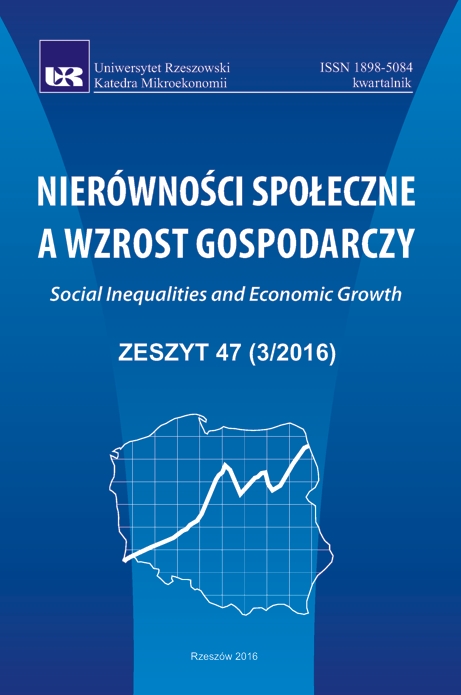Economic Security in the Era of Hyperglobalization
DOI:
https://doi.org/10.15584/nsawg.2016.3.5Keywords:
economic security, hyperglobalization, institutionsAbstract
The article discusses the place of economic security in the conditions of increasing globalization, which has been transformed into hyperglobalization. It has been pointed to the bankruptcy of the neoliberal development paradigm, which, absolutized, contributed not only to the financial and economic crisis, but also deeply limited the possibilities of the state influence on the course and direction of economic and political processes. The sizes of capital flows reached the amount to-wards which the trade turnover stopped to play an important role. The stock market game with great and still increasing cash capital has become the main form of economic activity. Widespread financial advice has become the new form of activity, rating agencies has developed, which often unwittingly or deliberately take part in the process of creating the behaviours of subjects and insti-tutions. The real sphere connected with production and services has not disappeared, but its role has become subordinate and dependent on the financial power system, which is controlled by the speculative games. If the economic security is uninterrupted functioning of economies, which means the maintenance of basic development indicators as well as the assurance of comparative balance with the economies of other countries, essential institutions are needed to this. The weak-ness of existing institutions, including effective forecasting and controlling mechanisms, which the recent financial and economic crisis made visible, provokes thoughts on the successful economic policy and redefining the relation of the state and the market. By creating specific institutions responsible for shaping economic security, some functions have to be assigned to them. These include in particular: regulation of people’s behaviours in a way which does not cause mutual harm or at least compensates the loss; reducing costs of making transactions by facilitating the conclusion of contracts and the access to the markets of goods, organizing the process of transmitting information and facilitating the educational process.Downloads
Download data is not yet available.
Downloads
Published
2020-11-11
How to Cite
Leszczyński, M. (2020). Economic Security in the Era of Hyperglobalization. Social Inequalities and Economic Growth, 3(47), 82–90. https://doi.org/10.15584/nsawg.2016.3.5
Issue
Section
Articles
License
Copyright (c) 2016 University of Rzeszow

This work is licensed under a Creative Commons Attribution-ShareAlike 4.0 International License.


